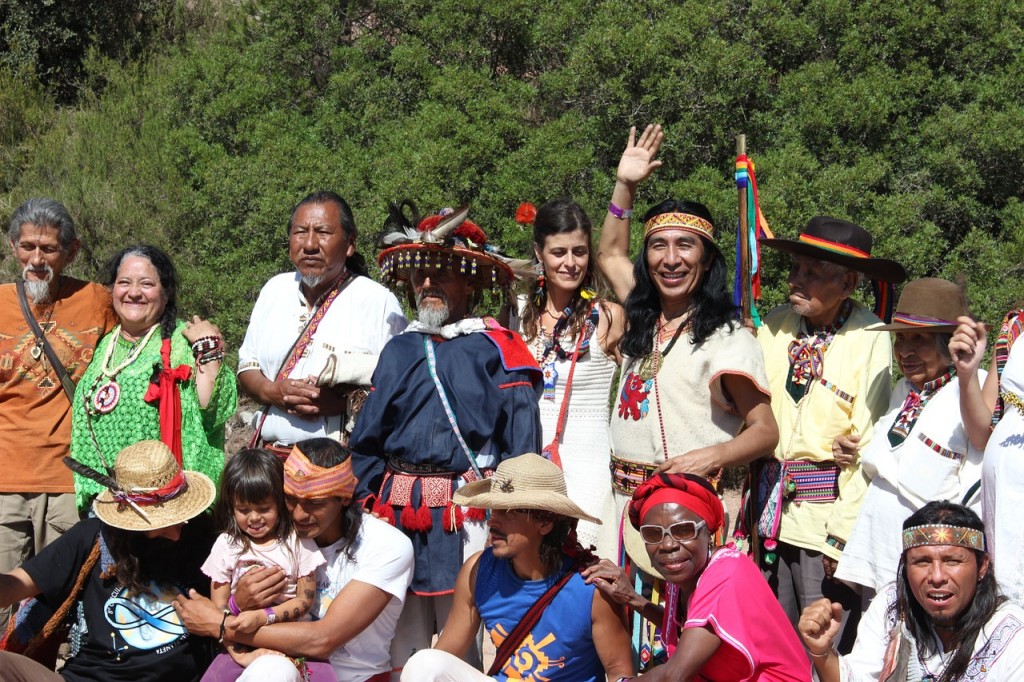What Do We Lose When a Language Dies?
Grandparents are often the best storytellers. They pull us into their laps, or let us crowd around their legs, and in their age-worn voices they recount memories and experiences from long ago that captivate us and leave us thirsting for more. Their stories are testimonies of the lives they’ve lived – the histories of our families – and though when we’re young we look to them solely as a source of entertainment, in the long run they are worth far more. They instil in us our moral codes, our family heritage and our sense of identity. Their stories help us to understand ourselves, and they establish the foundations of a narrative that often shapes our entire lives.
But what about the language of those stories? What about the language of our ancestors? Isn’t that an equally as important component in the broader context of our cultural histories? What would we lose if the experiences of our ancestors could no longer be passed down by oral traditions? What would we lose if the language of our past were permanently erased?
Table of Contents
***
This is exactly the fate that awaits speakers of nearly half of the world’s approximately 6,000 languages, according to a PBS documentary, “Language Matters”. Populations die out or communities homogenize and the world loses important features to the linguistic graveyard, which causes the loss of countless other things, including a unique worldview and scientific understanding of our cognitive capacities.
A Unique Worldview
Stephen R. Covey, author of The Seven Habits of Highly Effective People said, “we see the world not as it is, but as we are – or, as we are conditioned to see it.” And he makes a valid point. We do see the world as we are. Our observations are influenced by social, cultural and personal factors that impact our everyday lives, and language is inextricably intertwined with each of them. It is a medium through which we convey our inner thoughts to the outside world and it is a vehicle of private elucidation.
“We understand things, events, ourselves and others through a process of interpretation, which occurs in language,” explains University of San Francisco doctoral candidate Pamela Serota Cote, “this is how language, culture, and identity intersect.” We make sense of our surroundings and interpret our experiences through the languages we speak, creating a culture-specific lens through which we view the world.
When a language dies, however, that particular lens shatters. Linguists and researchers may try to revive it by documenting various technical aspects of the language, but the view will forever be warped and incomplete. And that’s traumatising, especially for the people on the inside. It’s painful to be inside a dying language – to know that generations down the line, no one will cherish your warm memories, or appreciate the sweet eloquence of your favourite poem, or understand the punch line of a joke that just doesn’t quite make sense when translated – but it’s not just tragic for those that experience it; it’s a deprivation for us all.
Every language contributes to the diversity of the world’s cultural ecosystem; every language brings us a fresh interpretation of our environments, of our experiences, of ourselves and of others. So, when we lose a language, we all suffer. Whether we know it or not, each time a language dies, our world gets a little more lacklustre and though communication might be easier, we aren’t necessarily better for it.
Scientific Understanding of Human Cognitive Capacity
World renowned linguist Noam Chomsky wrote, “when we study human language, we are approaching what some might call ‘the human essence,’ the distinctive qualities of mind that are, so far as we know, unique to man and that are inseparable from any critical phase of human existence, personal or social.” That’s a pretty impressive statement.
"The study of language reveals the essence of humanity."
But barring a few sceptics, it’s accurate. Studying a language yields enormous insights about the human mind; one such being the way our brains process language and use it to communicate effortlessly, freely, and creatively.
Different languages have different rules that all speakers – consciously or subconsciously – must subscribe to in order to be classified as ‘fluent’. These rules delineate the boundaries of human capacity to interpret and produce language. Linguists, thus, scrutinise languages to determine what exactly our minds are capable of. So what does this have to do with language death?
When a language dies – and has not been catalogued or recorded in depth – we lose the information coded in it; not just the knowledge it expresses, but the details of our cognitive capacities. Take for instance, Urarina, a language spoken by the Urarina people in the Loreto Region of Northwest Peru. Urarina implements an incredibly rare object-verb-subject (OVS) word order that is only present in a few other languages in the world. Now, imagine that Urarina had died out before linguists had gotten their hands on it – with only 3,000 speakers worldwide, it’s not an unreasonable scenario – or that the handful of other languages that use the OVS word order were not discovered before their extinction. Linguists may rightly have concluded that the human brain was incapable of processing a language that operated on this basis.
What about the languages that are disappearing as we speak? What secrets do they hold about the capacity of our cognitions? What gems might they reveal about the essence of our humanity? This is what we lose when languages die.
***
Language change is inevitable, and language death is imminent. As travel becomes easier and more convenient, as globalisation encroaches on indigenous populations, minority languages will fizzle out and be replaced by the monolithic language bullies of the world. But as we travel, as we globalise, as we traverse the planet that houses us all, let’s think about what exactly it is we lose when a language dies.
Do you have thoughts on language death and its cultural implications? Join the conversation, and let us know what you think in the comments below! And be sure to contact us to enrol in language courses near you – what better way to understand the unique cultural features intrinsic in every language than to learn one!




